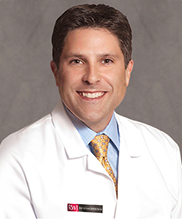
Caring for Your Heart Post-Infection
It quickly became clear that COVID-19 is more than a lung disease. Although the virus is called severe acute respiratory syndrome coronavirus 2 (SARS-CoV-2), doctors and researchers noticed as early as December 2019 that COVID-19 can harm the cardiovascular system.

That didn’t surprise Anthony Altobelli III, MD, Chief of Clinical Cardiology at Robert Wood Johnson University Hospital (RWJUH) and an attending cardiologist with RWJBarnabas Health Medical Group. “We know that viruses in general, including influenza and other coronaviruses, can affect the heart,” Dr. Altobelli says. “When people become severely ill with pulmonary complications, as they often do with COVID-19, related cardiac complications may not be far behind.”
As the pandemic evolved, the COVID heart connection became clearer. Older people, African Americans and people in lower socioeconomic groups often do worse, possibly because risk skews higher in people with other health problems, or comorbidities. Having more comorbidities increases the likelihood of a poor outcome from COVID-19. “Those comorbidities include cardiovascular disease, high blood pressure, diabetes and kidney disease,” Dr. Altobelli says.
Exploring Causes
The exact ways COVID-19 harms the heart are not well established, Dr. Altobelli says. The virus may directly invade heart muscle cells. But most cases seem due to indirect injury from virus-triggered inflammation. “Overwhelming inflammatory responses can lead to significant oxygen deprivation,”
Dr. Altobelli says. “That can cause lung damage and, as a result, create more demands on the heart, which in turn can lead to heart injury.”
People with existing heart disease are more likely to face COVID-related heart damage. “But this pandemic is a wake-up call to all of us in that people who are healthier fare better than those who are not as healthy,” Dr. Altobelli says. It’s important to control risks, he adds. “If you’re hypertensive, get blood pressure down; if you have diabetes, lower blood sugar; if you’re obese, lose weight; if you’re sedentary, become more active, regardless of your age,” Dr. Altobelli says.
Consult a cardiologist if you’ve had both heart disease and COVID, even if symptoms were mild. If you have persistent cardiac-related COVID symptoms for 12 weeks or more post-diagnosis, you should also see a cardiologist. “We offer comprehensive cardiovascular care that includes advanced cardiac imaging and a sport cardiology program for athletes affected by COVID-19,” Dr. Altobelli says. “All the advanced services you need are right here.”
Major Heart-Related COVID Complications
|
Whoever your heart beats for, our hearts beat for you. To connect with a top cardiovascular specialist at RWJUH, call 888-724-7123.